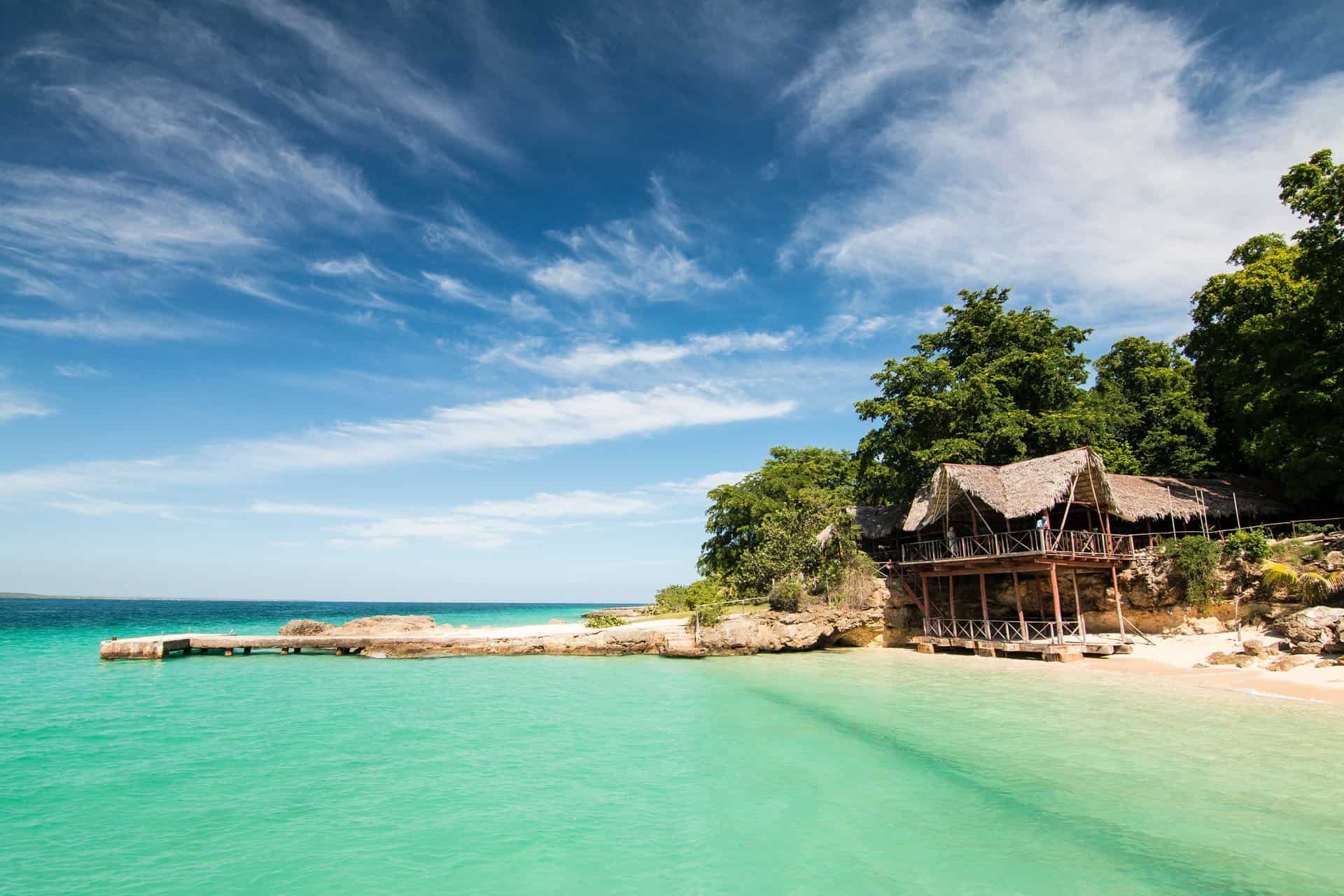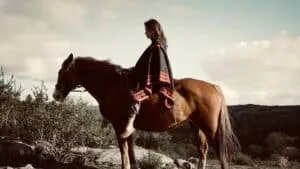
In 2016, actress and activist Rhona Mitra made the life-changing decision to leave life as she knew it in Los Angeles and embark on a transformative journey to Uruguay.
Here, on a 400-acre restored farm, she established The Last Ark Orphanage—a haven of rewilding, rehabilitating, and reshaping the relationship between horses and humans.
Situated within the embrace of a sprawling native ecosystem in the Sierras of Uruguay, the Last Ark Orphanage has offered solace to a remarkable cohort of over 80 horses since 2018. Once victims of abuse, neglect, and unspeakable trauma, these equine companions have found respite under the care of Rhona and her team.
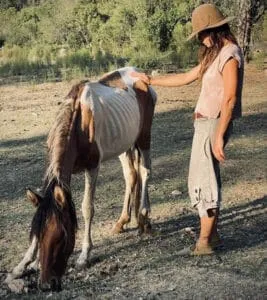
The fate narrowly avoided by many of these horses is a cruel one that feeds the insatiable demand for horse meat in Uruguay, a demand that surged twofold between 2021 and 2022. The dark reality of the blood mare industry, involving the exploitation of artificially inseminated pregnant mares, stands in stark contrast to the haven Rhona has created.
Describing the turning point that led her to Uruguay and her own “rewilding”, we spoke to Rhona about her experience integrating into a culture so deeply rooted in tradition and molded by the masculine. Rhona also tells us about daily life on the farm and her plans for the Last Ark Orphanage.
Rhona, first of all, can you tell us a bit about your initial connection to South America and horses here?
I had been very sick in California with an autoimmune disorder. After two years of Somatic Equine Therapy, detoxing with plants, and fundamentally removing myself from urban society, I had this very clear vision of myself being with a horse in Patagonia. A friend of mine knew someone who ran safaris in Torres del Paine, and he said, “Right, I’ve signed you up for an 80 km endurance race, and it’s starting in April”. I don’t know if you’ve ever reached a stage in your life when you’re just in a space of saying yes. There’s something about getting to a definitive cul-de-sac in one chapter of your life where there’s no turning back. For me, it was all of the infrastructures that I thought had supported me: my career, my friend group, and the persona that had propped me up for 40 years. All of a sudden, they were no longer. My past self disappeared like quicksand beneath me, and there was only forward.
I grew up riding horses the typical riding school way, but I had never entered a competition on a horse. All I knew was that I there was this horse, Jalisco, that I was supposed to go and meet. I don’t have visions, so it was an extraordinary thing for me, and I just said yes. Fast forward to April, I was just delighted to be well and alive and able to get on that plane and arrive in this place and be introduced to this incredible horse. I was in this slipstream of dizzy joy and gratitude on the Chilean side of Patagonia, giggling through glaciers and mountains in absolute awe. Even for somebody who’s traveled extensively, Patagonia is possibly one of the most extraordinary places in the world, especially on a horse’s back on an April morning with sparkly ground frost lighting the way.
At about 60 km, my back decided to go out, and when I tried to pull out, Jalisco was just like, “No—why on earth would I do anything you ask? I run with the herd, you are not my herd”. I realised at that point that I had to dig into a deeper part of my communication skills. I managed to slow him down, apologise, and dismount, but I still needed to get back home, and I had no idea where I was. Surrounded by glaciers and mountains and nothing else, I promised him that if we could get back safely together, I would create a place where humans can come and redefine their way of being with horses, and so he said, “Hop back on.”
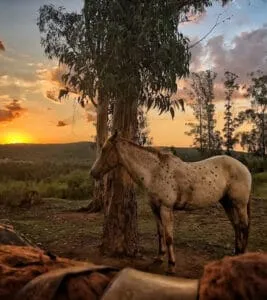
So what drew you to Uruguay in particular?
After the race, I ended up in Kenya and fell in love with the country, but I saw how safaris were run there, and I knew it wasn’t right. I still thought about moving to Africa, but it’s too dangerous, too archaic. I was coming back from Kenya and due to fly back to the States but got blocked because of my surname after a terror attack in Paris the night before. I had 2 suitcases to my name, and I said, “Right, Jalisco, it’s time to fulfill that promise—I need to go to South America and create that haven”. I got a one-way ticket to Buenos Aires, booked an Airbnb for 50 bucks a night, and enrolled in Spanish school. I knew the economy in Argentina was completely unstable, and Uruguay was a little safer. I had been once and remembered its calm disposition compared to most of South America. But it was more about the land, I had heard the permaculture community was stronger in Uruguay, and the big appeal to me was that there are a lot more horses than humans. I looked at six plots of land—it was imperative there was water and a small structure so I could bring my rescue pit bulls. In 2016 I signed the papers, and in 2017 I moved in. I was completely alone with the dogs, and that was how the journey started. I haven’t left since.
Have you experienced any big moments of doubt or regret in your move? What’s been your biggest learning curve?
In all honesty, the first five years trying to arrive at a place of equilibrium were the most turbulent and terrifying of my entire life (and I’ve seen and been through some fairly hectic stuff). At the point of the move, I didn’t have a home to go back to, I could only go forward, and I’m not somebody who sits and waits for things to happen. I had to move forward with a plan, but at first, that was fueled by a lot of fear and anger. One of the most profound lessons that I have learned is that you have to be very careful of the fuel that takes you there. The power of the fear will manifest the outcome physically, but you are then left with what was in that cocktail of fear. If you don’t change those ingredients, you will keep on inviting more fear-fueled experiences. You have to make sure you are in a good place before you make very drastic choices about your life.
None of this has come from a particular desire to create a traditional sanctuary. What happened was that I had been shown reasons why I needed to be here. Horses showed up in various states of distress, and I just stepped in. I also learned that I am never going to be a person who can walk away from an animal who needs help. It is one thing to say it, but it’s another thing to actually follow through with it and employ no delusions of being a saviour in yourself.
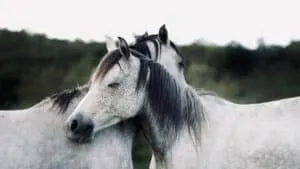
Can you tell me a little more about your experience integrating with the culture in Uruguay?
The reality of being a woman alone in the middle of the Campo in a country you don’t know, where you don’t know anybody, trying to build a home—I was naive. Being a foreign woman here makes you a target. It was brutal at times. You get robbed, people take over, and neighbours are always watching you. I had more peace and serenity living on Venice Boulevard than I had in my first 2 years here, which is bizarre.
You have to have caseros here, who are generally gaucho’s, and they’re there to take care of your land. The first casero I had was gifted an Arabian, and he was using brutal taming methods on her. I remember watching it and seeing her and feeling her distress in me. He was going to sell her for car parts so I told him I would pay for these car parts if that meant he’d let her be free in the land. What I did not know at the time was that she was going to be my mother, my grandmother, and my greatest teacher.
I’ve had seven caseros, and I don’t have any anymore because it requires you to take on the roll of ‘patrona’, the boss, but that is a role I don’t ever want to take on. This might be how this culture works, but I’m not going to alter my way of being to gain respect and show others that I’m not messing around. Every casero left because they realised they couldn’t pull the wool over my eyes. What I ended up finding out was that these horses needed me, and ultimately, I had to step up and take on the role of the casera.
Somebody I met said I couldn’t have land without animals on it. They had a herd of Arabians that needed to be taken care of, so I put them there. Before I knew it, I had 40 wild Arabians. There is no such thing as leaving horses by themselves, they need to be nurtured. Financially, I couldn’t take care of the horses myself, but I also couldn’t watch them die. I tried collaborations with local sanctuaries to see if I could hand over the land to them and play a certain part and share responsibilities. I still had my life and career and travel. On the 2 attempts that I tried, I got let down and I realised it was an impossible ask to depend on other people here, but all of a sudden I had a mini herd to take care of and I was forced to step up. The ability for me to travel around and see other parts of Uruguay were minimised.
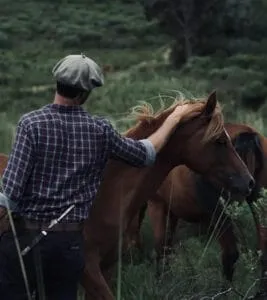
Did you experience any conflict with locals by helping horses in this way?
I quickly realised that the way I take care of horses is very rare around here. I have a connection with each and every one of them to the point they will all come merely by calling their name. The only work I do with them is a collaboration in which I do not impose any level of stress on them. I am aware that I am a guest here. The whole ecosystem here is completely protected, and I am in true reverence for the land and its animals. I don’t like to call myself the owner of anything, so I call myself the nanny, and that is my job here. I have to watch and learn and listen to the four seasons of what the land is telling me.
The sanctuary doesn’t really compare to what anybody else is doing around here. I keep out of everybody’s business, traditions and culture are so deeply embedded. I’m not interested in going up against anybody. What I’m here to do is create and show an alternative. All I can do is create an example by walking the walk and showing other people there’s a different and kinder way of being. What I have seen along the way by going to local auctions is that people are selling horses for meat almost at the same rate as cattle. And this is not just Uruguay. Argentina, Uruguay, and Iceland have a blood farming situation with mares. They are called yeguas de sangre and there is no need for them because there is a synthetic alternative to the hormone. Although brutal, they’re legal and people still don’t know about them. They are so covered up. But people need to be educated on this, which will not please everyone I’m sure.
I am not here to disrupt anything for the sake of it, but I am here to uncover the truth of what is ethically wrong. I’m not stupid, I know these things aren’t gonna disappear, but how about we talk about a different way of doing it? How about we see if people can pull off rodeos bitless, without spurs. Let’s talk about alternatives. I think a lot of people cock their heads when they ask what I’m doing with the horses. They think our relationships with horses are limited to training, selling, and breeding them. The ultimate goal is to get rid of any agenda at all. When we remove agenda we have to show up without ego, armor, and dominance. It’s the greatest form of healing that exists for mankind. It’s not about removing the relationship between man and horse completely, but there has to be a partnership and most people don’t have the patience for that.
In terms of the Last Ark Orphanage, when did that get started and how has it evolved?
I took on a couple of cases around early 2020, particularly one severe case of starvation and neglect. I didn’t ever ask anyone for help, that’s not in my nature, and I didn’t think about opening it up to a larger community or asking people to join. But this particular case pushed me to the point where I realised it was a lot of work for just me and I couldn’t leave, so if people want to help, why don’t I give them the avenue to do that? Phoenix, this horse, was the instigator of that, and right after I took her on, New Lives in the Wild came to do an episode, and it really snowballed from there. I realised there’s this incredible global community of people who really do care. They might not be able to do what I’ve done, or they’re not mad enough to, but they want to help, so the Last Ark Orphanage was born, and now it’s an official non-profit.
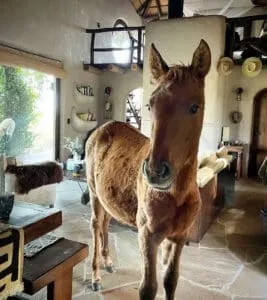
So, what does your daily life with the horses look like?
It’s interesting when you’re doing something with your heart so involved. Obviously, it’s work, it takes hours of your day, and all the horses are in different states of recover. I have realised that every horse and every human has a different relationship to nature and its ability to survive within it. Some of us have to be reminded of that. I’d say that 80% of my work is listening. Watching the horses interact with each other; what they eat. One of the biggest parts of my relationship with them comes from the respect and space I give them without a rope, a bucket, a treat, or a trick. Horses have the ability to read all of your emotions even if they have never met you. That’s a powerful part of my practice with them. But there are some other fairly important nuts and bolts too.
Because all of the horses are at various stages of recovery, either nutritionally or medically, some have to be castrated, some have hernias that have to be removed. So there are either surgeries or medicating post-surgeries, maintaining the hooves, giving anti-parasite medicine, looking for and caring for cuts so maggots don’t set in. Sometimes, having to scour the entire land on foot to look for missing horses and make sure everybody is safe takes up a huge part of the day. Fixing the fences and securing the parcels and readying the land, and now sowing seeds has been taking up a lot of bandwidth these last few months during the drought.
But another one is bringing them into my garden and integrating them into my life. Our lives are interwoven with no stables, boxes, or workplaces, it’s just us. Here. Together.
What’s your ultimate vision for the Last Ark Orphanage?
I would love to turn this into a space where people can experience semi-wild horses at ground level, integrating little adventures that teach people about this way of being with our equine family members and nature. I will host what some people call clinics to introduce Doma India to those who are still going to be working with horses for cattle farming but doing it in a much more gentle way. Ideally, I’d love for the Last Ark to be a physical blueprint for an alternative way for people to be with horses. The other thing is nutrition. Working with the land, we have a lot to learn about our medicine. Having the land be our school, a giant playground for people to rewild themselves is the Last Ark ethos.
This is not about horsey people, in fact, I am one of the least horsey people on the planet. This is about how we reconnect everybody back to our childlike nature. Horses are all about play and lightness of spirit. We have forgotten that. If we can bring people back to their nature and reconnect with their lightness of spirit, that’s magic. It’s not about numbers. It is an invitation back to yourself, really, that’s the vision.
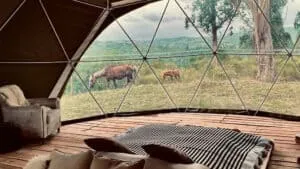
Do you think you’ll stay in Uruguay forever? What’s next for Rhona?
I have no absolutely no idea. I have let go of needing to have any idea. I’ve so stepped out of what I need and want and have put them before me on every level. Whatever is required for me to stay here to make sure that the horses are taken care of, I will do. What I would love is for a couple of lovely families who love horses and want to raise their kids here to come and hold the fort while I travel and immerse myself in other cultures. I will always have this, these horses are not going anywhere. Travelling is one of the greatest educations, and there’s so much play to be had. Much of my heart still lies in Patagonia, and I could see myself there.
With Rhona as its guiding force, The Last Ark Orphanage stands as a testament to the transformative power of compassion in healing the wounds of both animals and humans alike.
Read more about Rhona’s story and find out how you could get involved with the Last Ark Orphanage below.
CONTACT US
Get in touch to start planning your journey.
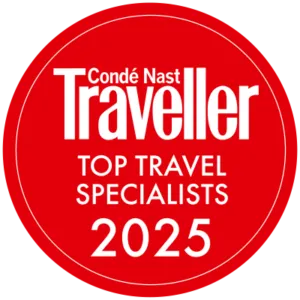
Conde Nast Traveler Specialists every year since 2017
Related Stories
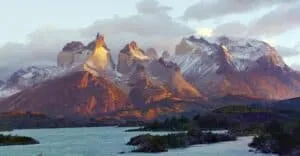
The Ultimate Guide to Exploring Patagonia

A Weekend in Montevideo
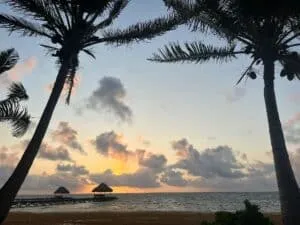
Tilda’s Two Week Adventure across Guatemala & Belize
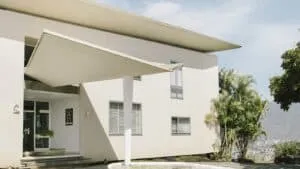
Visit Gio Ponti’s Villa Planchart in Caracas
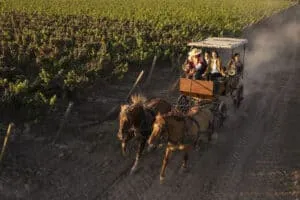
Exploring Chile’s Wine Country
@plansouthamerica
